Ava Max calls for artist protection, fair compensation, and stronger legal frameworks around AI during her Concordia interview with President Iván Duque.

We may receive a portion of sales if you purchase a product through a link in this article.
Ava Max calls for artist protection, fair compensation, and stronger legal frameworks around AI during her Concordia interview with President Iván Duque.

President Iván Duque Interviews Ava Max on AI’s Role in Music at Concordia: "AI Has No Soul"
Ava Max calls for artist protection, fair compensation, and stronger legal frameworks around AI during her Concordia interview with President Iván Duque.

Ava Max, the global pop sensation known for her chart-topping hits and dynamic performances, sat down with PopFiltr after her impactful appearance at the 2024 Concordia Annual Summit. Participating in the pivotal panel discussion "The Role of AI in the Music Industry," Ava seized the moment to voice deep concerns and champion the rights of artists in an era where artificial intelligence is rapidly reshaping music.
During our conversation, Ava shared a personal experience that ignited her mission to advocate for artists' rights and push for legislative change. A few months ago, Ava was presented with a demo of an AI-generated track featuring her voice—a song she had never recorded.
“I was terrified,” Ava recalled. “Hearing my voice on a track I never touched made me realize how fast AI is advancing—and how unprotected artists and their teams are.” That moment spurred her to take action, recognizing the urgent need for a legal framework to protect creators from the rapid encroachment of AI.
Eager to address the issue on a prominent stage, Ava sought opportunities to amplify her message. In May 2024 during the Milken Global Conference in Los Angeles, Ava met Iván Duque, the former President of Colombia at the exclusive Bird Streets Club.
Over their meal, they delved into the challenges AI poses for artists, discussing how technology is causing upheaval in the music industry. Inspired by their conversation, Ava immersed herself in research, including binge-watching episodes of the All-In Podcast, to deepen her understanding of AI's impact.
"We need to start thinking about intellectual property in the age of AI—should artists be compensated when their music is used to train AI models?" Ava posed to PopFiltr, emphasizing the urgent need for updated laws to protect creative rights. She passionately advocated for a system that ensures artists are fairly compensated when their work contributes to AI advancements.
Her dedication led to the opportunity to speak alongside President Duque at the Concordia Summit. Known for hosting influential figures like President Joe Biden, Bill Clinton, Queen Rania of Jordan, and Warren Buffett, the Summit provided the perfect platform to elevate the conversation about AI's impact on music.

Engaging in a profound dialogue with President Duque, Ava continued the conversation they had begun months earlier. Their exchange highlighted the significant implications of AI on the music industry. "I think we can all agree that AI doesn't have a soul," she stated with conviction. When asked about using AI in the creative process, her response was both heartfelt and incisive: "It takes blood, sweat, tears, hours, long days, and sometimes even months to make a song. AI can generate 150 iterations in less than half a second, but where's the creator behind that?"
Ava elaborated on the irreplaceable human element in artistry. Reflecting on her hit "Sweet but Psycho," she shared, "We probably had ten different versions before settling on the final one. It takes a village, a team, and time. With AI, where is the heart in the process?" Her insights underscored a key concern for artists: while AI can mimic structure and style, it lacks the soul and human experience that give music its deeper meaning.
The discussion naturally turned to the ethical implications of AI, particularly the unauthorized use of copyrighted material. Ava called for immediate legislative action to protect singers, songwriters, producers, and engineers from the rapid advancements of AI. "Ultimately, AI-generated music shouldn't come at the cost of devaluing the human artistry it learns from," she asserted.
When addressing the potential loss of high-paying jobs in entertainment due to AI, Ava referenced an anecdote shared by Michael Ovitz on her favorite podcast, the All-In Podcast. "Bestie David Friedberg asked Michael Ovitz, the legendary founder of CAA, a question that struck a chord with me," she recounted. "Ovitz mentioned that 250,000 people in Los Angeles make their living in the media business, and they're all afraid of one thing: are they going to have a job in the near future? A production designer he hired for a three-week project asked if he would still have a job if AI could do it in an hour. And frankly, Michael Ovitz didn't have an answer." She related this uncertainty to her own concerns about the future of music and entertainment.

Despite the challenges, Ava expressed hope that human creativity will retain its value, potentially becoming a luxury in a world flooded with AI-generated content. "If there's so much AI out there, maybe real human depth and experience will become more valuable. It could be exciting, and maybe more talent will emerge. We don't know yet," she mused.
Offering thoughtful advice on investment opportunities in AI, Ava responded when President Duque asked how investors should approach the industry. "That's a trillion-dollar question. We need to move with the times, and those who can adapt will be the most successful." She emphasized the necessity of developing policies and compensation structures that protect artists as AI continues to proliferate. For investors, the situation presents both a challenge and an opportunity to lead transformation while ensuring fair practices for creators.
As AI's capabilities grow, especially in creating personalized music based on individual preferences and biometric data, the issue of streaming royalties becomes increasingly complex. Ava speculated on the future of royalty payments: "It's likely that a large portion of new music royalties will come from AI-generated or AI-assisted music. The real question is, should AI-generated music receive the same royalties per stream as artist-made music?" Her focus on the moral and ethical implications of AI highlighted the need for clear regulations to prevent exploitation. "It's about fairness. Artists, myself included, work so hard on our songs, our creations, and it has a depth that AI can't replicate."
When asked about the future of superstars and wether they’ll have a place in the music industry, Ava responded with optimism. "Absolutely! The way they are created and maintained may change, but while AI can mimic structures, genres, and trends, it can't emulate the pain of loss or the joy of new life like the human heart does." For her, the future of music isn't about rejecting AI but ensuring that human creators remain at its core.
For Ava Max, participating in the 2024 Concordia Summit wasn’t just a speaking opportunity—it was a chance to influence the global conversation on how AI is reshaping the music industry. With over 15.6 billion streams and a portfolio filled with RIAA Platinum certifications, Ava has cemented her status as a global pop icon. Yet, as she noted during her panel with Iván Duque, the same technology that fuels efficiency also poses existential threats to the creative process.
Ava Max's advocacy serves as a powerful reminder that while AI offers tremendous potential, it must not come at the expense of the creators who give music its soul. Determined to protect and value artists, she is leading the charge to ensure that the future of music honors and safeguards human creativity above all.

Somethin' 'Bout A Woman (Ft. Teddy Swims) earns RIAA Platinum for Thomas Rhett, recognizing 1,000,000 units on December 5, 2025.
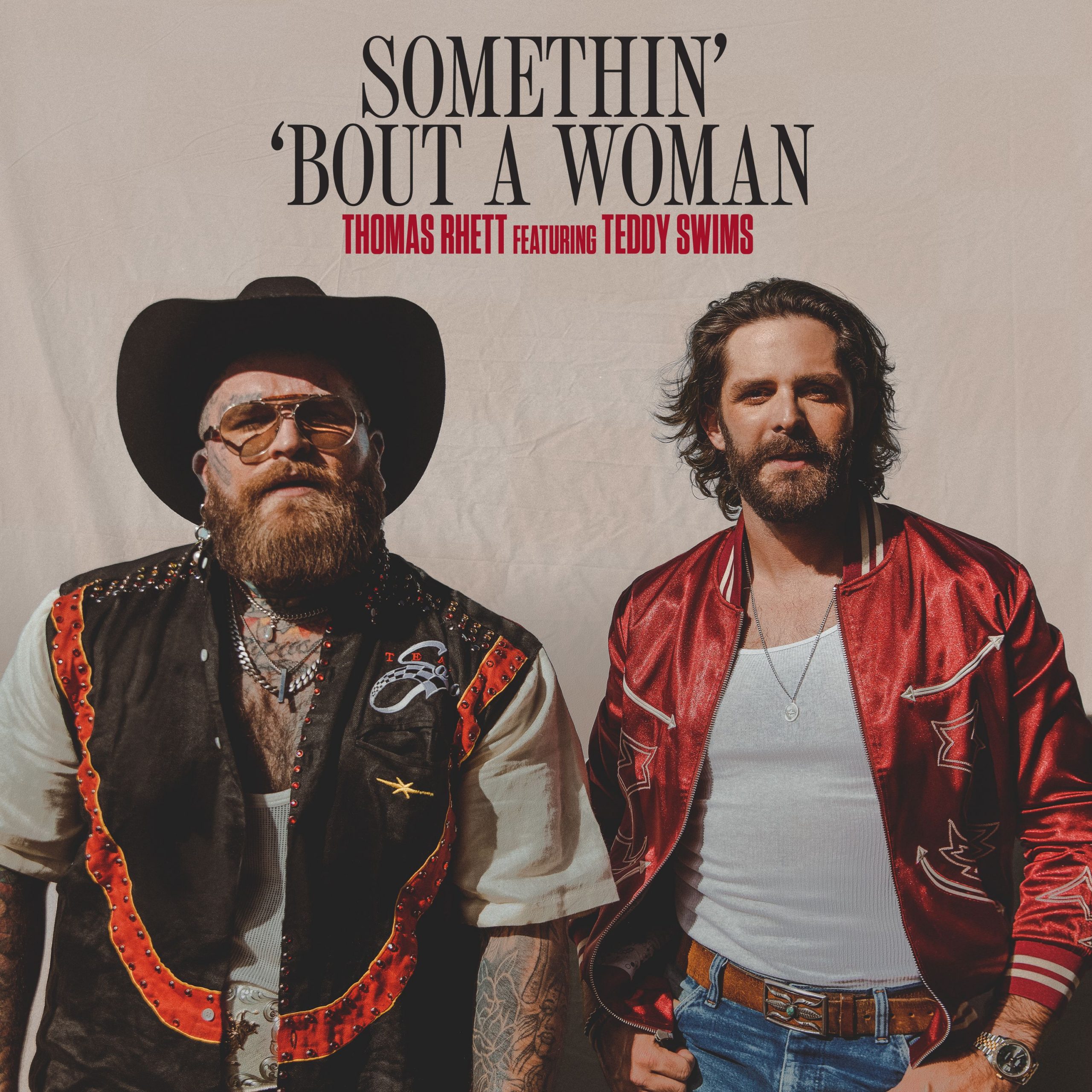
We may receive a portion of sales if you purchase a product through a link in this article.
Somethin' 'Bout A Woman (Ft. Teddy Swims) earns RIAA Platinum for Thomas Rhett, recognizing 1,000,000 units on December 5, 2025.

Somethin' 'Bout A Woman (Ft. Teddy Swims) earns RIAA Platinum for Thomas Rhett, recognizing 1,000,000 units on December 5, 2025.

Thomas Rhett's collaborative single with Teddy Swims, "Somethin' 'Bout A Woman," has officially achieved Platinum status, the Recording Industry Association of America (RIAA) announced on December 5, 2025. The certification from The Valory Music Co. label recognizes 1,000,000 units sold and streamed in the United States for the digital country single.
The track was originally released on August 23, 2024, as part of Rhett's album, "About A Woman." The project, which some platforms list as "About A Woman (Deluxe Edition)," features the soulful duet as a standout track, blending Rhett's signature country-pop sound with the vocal style of his collaborator, Teddy Swims. The certification date coincides with the release of a separate live project, "Thomas Rhett Live From Fenway Park."
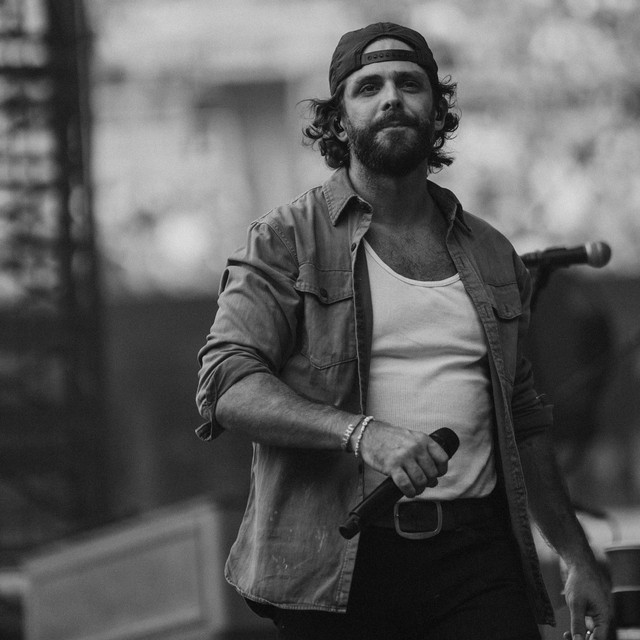
This certification adds to an already decorated career for Thomas Rhett, who has been one of country music's most consistent and engaging chart-toppers for over a decade. An established superstar known for both his songwriting and charismatic live performances, Rhett has garnered numerous accolades, including eight ACM Awards-notably the 2020 Entertainer of the Year award-two CMA Awards, and five Grammy nominations. His commercial success is underscored by more than 16 billion global streams and a significant digital footprint, including approximately 5 million followers on Spotify, over 12 million monthly listeners, and more than 6.3 billion lifetime streams on Pandora. With a nearly unbroken streak of No. 1 hits dating back to 2013, Rhett continues to be a dominant force in the genre.
This Heart earns RIAA Gold for Corey Kent, recognizing 500,000 units on December 5, 2025.

We may receive a portion of sales if you purchase a product through a link in this article.
This Heart earns RIAA Gold for Corey Kent, recognizing 500,000 units on December 5, 2025.

This Heart earns RIAA Gold for Corey Kent, recognizing 500,000 units on December 5, 2025.

Country artist Corey Kent has achieved a new milestone in his career, as his single "This Heart" was certified Gold by the Recording Industry Association of America (RIAA) on December 5, 2025. The certification recognizes 500,000 units sold and streamed in the United States. Released on January 26, 2024, via RCA Records Label Nashville, the track has resonated with a significant audience, accumulating over 40 million streams on Spotify alone and contributing to the artist's steady rise in the country music scene.
Originally from Bixby, Oklahoma, Kent began his musical journey at a young age, inspired by artists like Garth Brooks. He gained national recognition in 2016 as a contestant on season eight of the competition show The Voice, where he was a member of Blake Shelton's team and advanced to the Top 10. After his time on the show, Kent continued to build his career, eventually dropping his last name, White, from his stage name. His breakthrough came in 2022 with the viral success of his song "Wild as Her," which led to his signing with Sony Music Nashville's RCA Nashville imprint and solidified his position as a mainstream artist.

"This Heart" follows the success of previous releases and is featured on Kent's 2024 album, Black Bandana. The Gold certification for the single underscores Kent's consistent growth and connection with fans. His digital presence includes over 2.8 million monthly listeners on Spotify and more than 572,000 followers on TikTok, platforms that have been instrumental in his expanding reach. This latest RIAA award marks another significant achievement for the Oklahoma-bred singer-songwriter.
So Icy Boyz: The Finale earns RIAA Gold for Gucci Mane, recognizing 500,000 units on December 4, 2025.

We may receive a portion of sales if you purchase a product through a link in this article.
So Icy Boyz: The Finale earns RIAA Gold for Gucci Mane, recognizing 500,000 units on December 4, 2025.

So Icy Boyz: The Finale earns RIAA Gold for Gucci Mane, recognizing 500,000 units on December 4, 2025.

On December 4, 2025, Gucci Mane's compilation album, So Icy Boyz: The Finale, was officially certified Gold by the Recording Industry Association of America (RIAA). The certification signifies 500,000 certified units in the R&B/Hip-Hop category. The album was released via the artist's own 1017 Global label in partnership with Atlantic Records.
A foundational artist in the trap subgenre, Atlanta-based rapper Gucci Mane has long been recognized for his prolific discography and his role as a talent scout through his 1017 Records imprint. His influence is reflected in his digital footprint, which includes over 6 million Spotify followers and a popularity score of 78 on the platform, where his music is categorized under southern hip hop, rap, and trap. Released on December 9, 2022, So Icy Boyz: The Finale serves as a sprawling showcase for the artists signed to his label, continuing the So Icy Boyz compilation series.
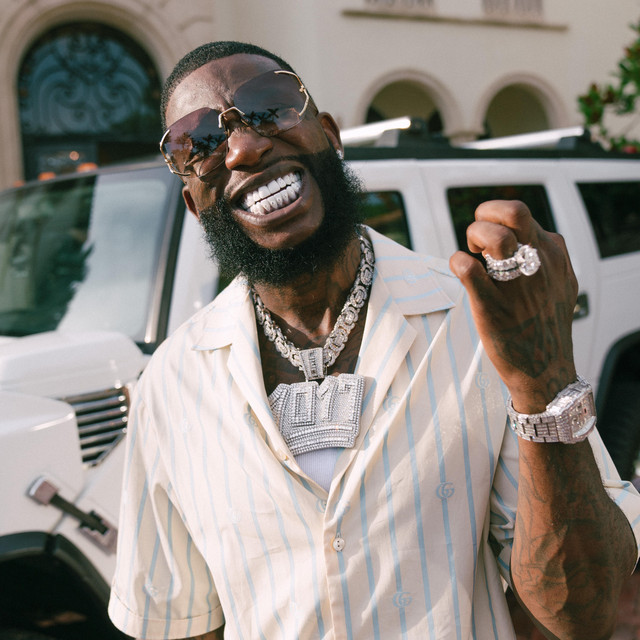
The Gold certification applies to the album format of the project. Data surrounding the release highlights the complexities of tracking modern digital projects. While the certified work was released in 2022, Apple's iTunes platform lists a related collection titled So Icy Boyz (Deluxe) with an earlier release date of August 15, 2021. Furthermore, the music annotation platform Genius appears to associate the project with the title "Verzuz: Gucci Mane x Jeezy," reporting approximately 78,561 pageviews for its entry.
The Joker earns RIAA 7x Platinum for Steve Miller Band, recognizing 7,000,000 units on December 4, 2025.

We may receive a portion of sales if you purchase a product through a link in this article.
The Joker earns RIAA 7x Platinum for Steve Miller Band, recognizing 7,000,000 units on December 4, 2025.

The Joker earns RIAA 7x Platinum for Steve Miller Band, recognizing 7,000,000 units on December 4, 2025.

The Steve Miller Band's enduring 1973 hit, "The Joker," has officially been certified 7x Platinum by the Recording Industry Association of America (RIAA). The certification, dated December 4, 2025, recognizes 7,000,000 certified units in the United States. The classic rock single was released by Capitol Records and continues to be a staple of the band's celebrated catalog.
Released on October 1, 1973, as the title track from the album of the same name, "The Joker" became a major commercial success, topping the U.S. Billboard Hot 100 chart in early 1974. The song is known for its laid-back groove and memorable lyrics, which famously reference several of the band's earlier works. The opening lines allude to characters and phrases from previous songs, including "Space Cowboy" (from the 1969 album Brave New World ), "Gangster of Love" (from 1968's Sailor ), and "Enter Maurice" (from 1972's Recall the Beginning... A Journey From Eden ), weaving together a mythology that defines Steve Miller's musical persona.

Led by guitarist and vocalist Steve Miller, the Steve Miller Band was a key fixture of the San Francisco music scene that emerged in the late 1960s. The group initially perfected a psychedelic blues sound on albums like Children of the Future and Sailor before transitioning to a more polished, pop-oriented rock style in the 1970s that dominated radio airwaves with hits like "Take The Money and Run," "Rock'n Me," and "Fly Like an Eagle." Miller's musical education was steeped in American roots music; his parents were jazz aficionados and friends with Les Paul, and he later played with blues legends such as Muddy Waters and Howlin' Wolf in Chicago. The band's lasting impact is evident in its digital footprint, which includes over 3.3 million Spotify followers, more than 4.6 billion lifetime streams on Pandora, and over 20.5 million Shazams for its catalog.
Solcito earns RIAA Latin Gold for Miguel Bueno & Juan Duque, recognizing 30,000 units on December 4, 2025.
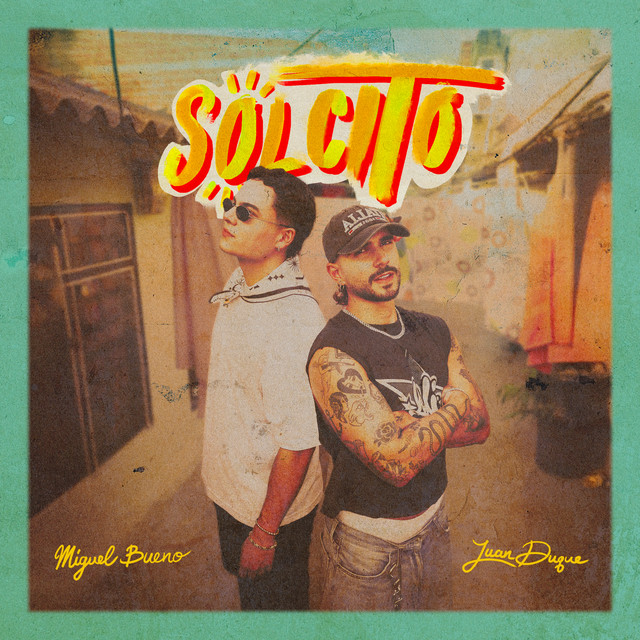
We may receive a portion of sales if you purchase a product through a link in this article.
Solcito earns RIAA Latin Gold for Miguel Bueno & Juan Duque, recognizing 30,000 units on December 4, 2025.

Solcito earns RIAA Latin Gold for Miguel Bueno & Juan Duque, recognizing 30,000 units on December 4, 2025.

The single "Solcito" by Colombian artists Miguel Bueno and Juan Duque has officially been certified Latin Gold by the Recording Industry Association of America (RIAA). The certification, dated December 4, 2025, recognizes 30,000 equivalent units in the United States. Released on March 13, 2025, under the label Cobuz & Bustta Llc, the track marks a significant achievement for the collaborators in the Latin music market.
Miguel Bueno, the song's primary artist, is a Medellín-born singer who describes his sound as a unique blend of urban and pop music. Signed to Wayti Records, Bueno aims to create music with emotive lyrics and danceable rhythms. His catalog includes other successful tracks such as "Escándalo," "Fan de tus ojos," and "Lo que te duele." His primary genres are identified as reggaeton and perreo, with influences of latin dance and champeta, reflecting a modern, vibrant sound that resonates with a broad audience.
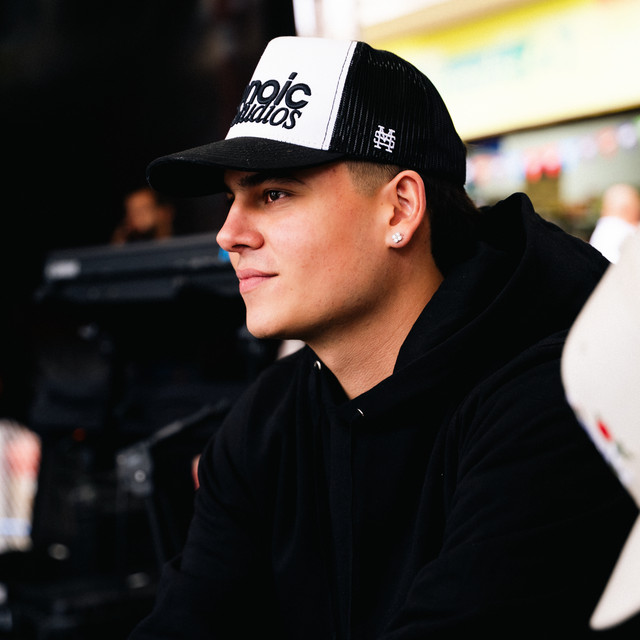
The success of "Solcito" is reflected in its streaming performance, having garnered over 168 million plays on Spotify alone. This milestone is indicative of Bueno's growing mainstream career, which is supported by a substantial digital following. The artist maintains over 3.7 million monthly listeners on Spotify, approximately 1.28 million followers on Instagram, and over 809,000 followers on TikTok. His primary listening audience is concentrated in major Latin American cities, including Bogotá, Medellín, Santiago, and Mexico City, underscoring his expanding influence across the region.
Sudno (Судно) earns RIAA Gold for Molchat Doma, recognizing 500,000 units on December 4, 2025.

We may receive a portion of sales if you purchase a product through a link in this article.
Sudno (Судно) earns RIAA Gold for Molchat Doma, recognizing 500,000 units on December 4, 2025.

Sudno (Судно) earns RIAA Gold for Molchat Doma, recognizing 500,000 units on December 4, 2025.

Belarusian post-punk band Molchat Doma has achieved a major U.S. milestone, with their single "Sudno (Судно)" officially certified Gold by the Recording Industry Association of America (RIAA) on December 4, 2025. The certification recognizes 500,000 certified units. Released on September 7, 2018, via Sacred Bones Records, the track is a standout from the band's second studio album, Этажи (Etazhi).
"Sudno" gained widespread international attention years after its initial release, becoming a viral sensation on platforms like TikTok, where it has soundtracked over 1.1 million video posts. The song's melancholic and atmospheric tone is rooted in its lyrics, which are adapted from the poem "Эмалированное судно" ("Enameled Bedpan") by the late Russian poet Boris Ryzhy. Ryzhy, who died by suicide at age 26, was known for his works exploring themes of despair and crime in post-Soviet Russia, a context that lends the song its haunting depth.
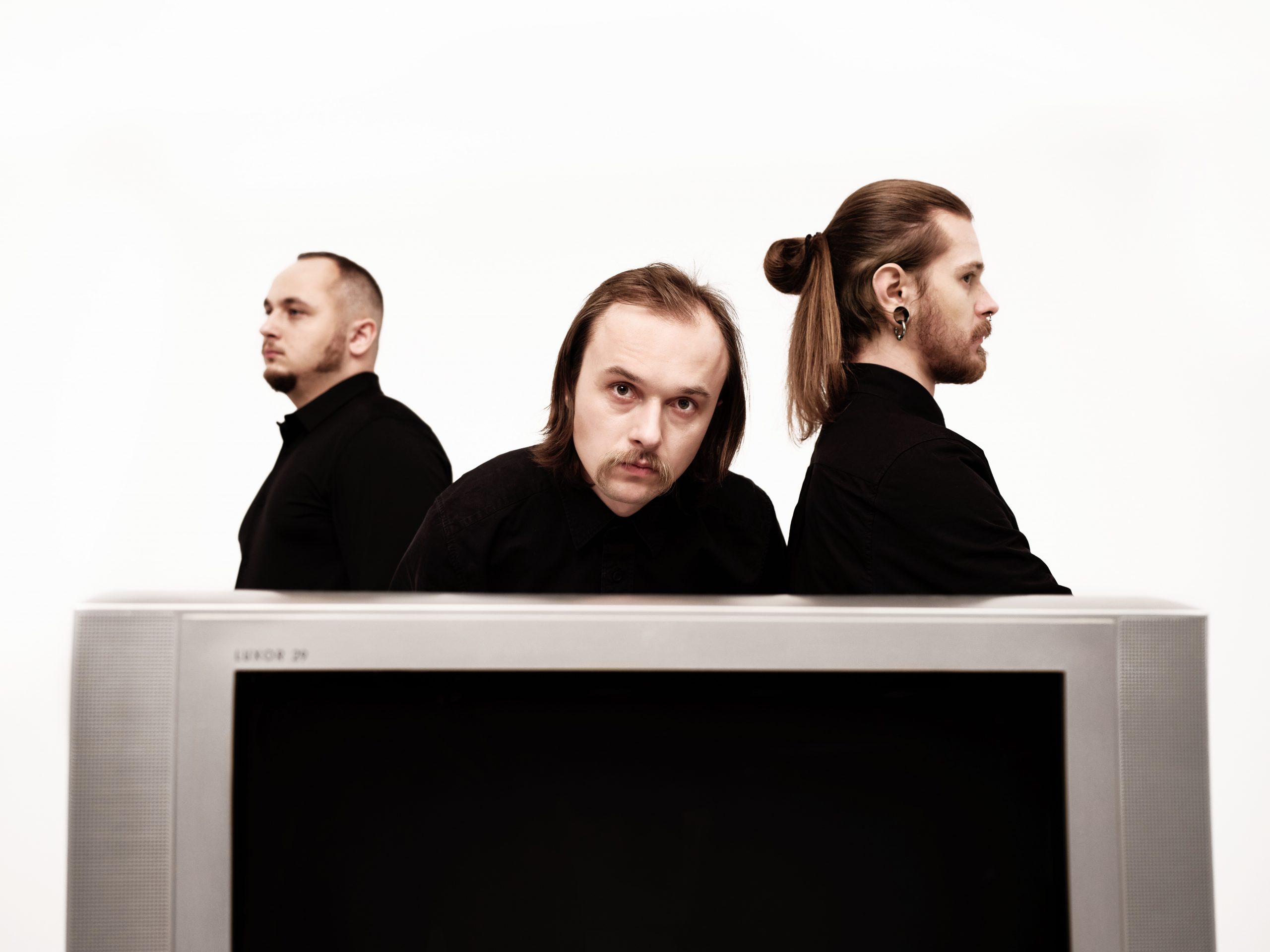
Formed in Minsk, Belarus, in 2017, Molchat Doma (which translates to "Houses Are Silent") has carved a distinct niche at the intersection of post-punk new-wave, and synth-pop. Their sound is often described as darkwave and cold wave, characterized by a "dark yet danceable" quality and a brutalist aesthetic. The trio's global rise led them to relocate from their native Minsk, and they have since cultivated a substantial international following, with over 1.6 million followers and more than 2.6 million monthly listeners on Spotify. The Gold certification for "Sudno" underscores their transition to a mainstream act with a steady global career trajectory.
Me, Myself & I earns RIAA 9x Platinum for G-Eazy & Bebe Rexha, recognizing 9,000,000 units on December 3, 2025.
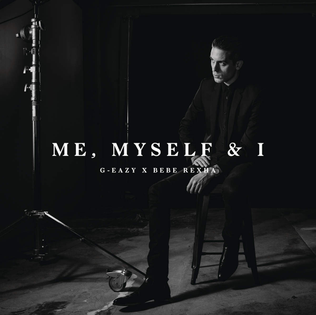
We may receive a portion of sales if you purchase a product through a link in this article.
Me, Myself & I earns RIAA 9x Platinum for G-Eazy & Bebe Rexha, recognizing 9,000,000 units on December 3, 2025.

Me, Myself & I earns RIAA 9x Platinum for G-Eazy & Bebe Rexha, recognizing 9,000,000 units on December 3, 2025.

The collaborative single "Me, Myself & I" by G-Eazy and Bebe Rexha has achieved a significant sales milestone, earning a 9x Platinum certification from the Recording Industry Association of America (RIAA). The certification, dated December 3, 2025, recognizes 9,000,000 certified units in the United States. The R&B/Hip-Hop track was released by RCA Records.
Released as a single on October 13, 2015, "Me, Myself & I" was featured on G-Eazy's sophomore studio album, When It's Dark Out, which followed on December 4, 2015. The song's lyrics center on a desire for privacy and finding solace in music. According to Genius, the track was originally a demo titled "I Don't Need Anything" before G-Eazy whose real name is Gerald Gillum, heard it and rewrote the verses to create the final pop-rap collaboration with Rexha. The title phrase itself has a longer history in popular music, notably appearing in a 1937 song of the same name by jazz singer Billie Holiday.

Upon its release, "Me, Myself & I" became a major commercial success, peaking at No. 7 on the Billboard Hot 100 chart and marking a significant hit for both artists. The song's lasting appeal is reflected in its digital engagement metrics, including a Spotify popularity score of 77 and approximately 2,836,949 pageviews on the lyrics website Genius. As a primary artist, G-Eazy maintains a substantial following, with 6,331,882 followers on Spotify.
Out Of My League earns RIAA 5x Platinum for Fitz & The Tantrums, recognizing 5,000,000 units on December 3, 2025.

We may receive a portion of sales if you purchase a product through a link in this article.
Out Of My League earns RIAA 5x Platinum for Fitz & The Tantrums, recognizing 5,000,000 units on December 3, 2025.

Out Of My League earns RIAA 5x Platinum for Fitz & The Tantrums, recognizing 5,000,000 units on December 3, 2025.

The Recording Industry Association of America (RIAA) has officially certified "Out Of My League" by Fitz & The Tantrums as 5x Platinum. The certification, dated December 3, 2025, recognizes 5,000,000 certified units for the digital single. Released by Elektra Records, the track is categorized in the Alternative genre.
Originally released on February 8, 2013, "Out Of My League" was the lead single from the band's second studio album, "More Than Just a Dream." The song is described as an electro-rock love song about a protagonist who is completely smitten with a partner they feel is out of their league. The narrative explores the surreal, dreamlike feeling of a relationship that seems too good to be true but is, in fact, reality.

Fitz & The Tantrums, an American indie pop and neo-soul band formed in Los Angeles, achieved significant mainstream success with "More Than Just a Dream." "Out Of My League" became a signature hit for the group, charting prominently and helping to define their sound, which blends vintage soul influences with modern pop production. The song's enduring appeal is highlighted by this latest multi-platinum milestone.
Of All Things (Ft. Too Short) earns RIAA Gold for G-Eazy recognizing 500,000 units on December 3, 2025.
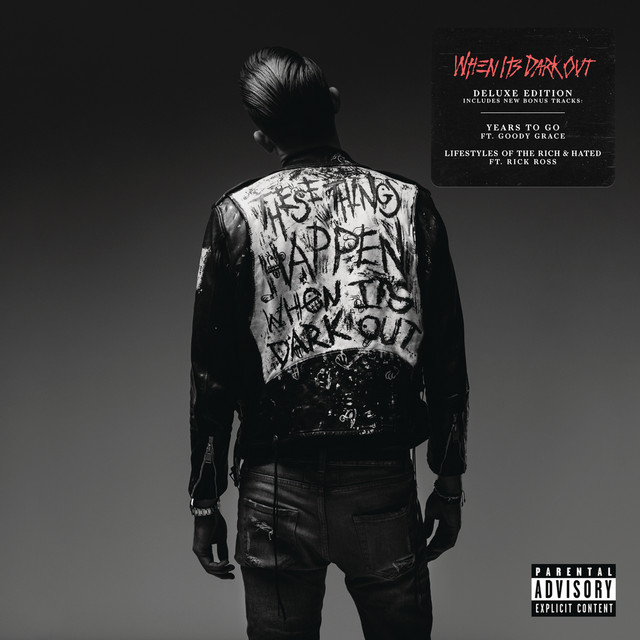
We may receive a portion of sales if you purchase a product through a link in this article.
Of All Things (Ft. Too Short) earns RIAA Gold for G-Eazy recognizing 500,000 units on December 3, 2025.

Of All Things (Ft. Too Short) earns RIAA Gold for G-Eazy recognizing 500,000 units on December 3, 2025.

G-Eazy's collaboration with fellow Bay Area artist Too $hort, "Of All Things," has officially achieved Gold status, as certified by the Recording Industry Association of America (RIAA). The certification, dated December 3, 2025, recognizes 500,000 units sold in the R&B/Hip-Hop genre. The single was released by Bpg/Rvg/RCA Records on December 4, 2015.
The track appears on G-Eazy's album When It's Dark Out and its subsequent deluxe edition. The collaboration was a deliberate choice for G-Eazy who viewed Too $hort as one of his heroes. According to G-Eazy he had written the entire record himself but always envisioned the Bay Area legend on the track. This marked their second time working together, following their previous song, "Show You The World."

G-Eazy (born Gerald Earl Gillum) has frequently cited Bay Area pioneers as major influences, placing Too $hort in the same esteemed category as E-40. Too $hort, a hip-hop icon, is widely known for his influential 1985 record Born to Mack. The enduring popularity of "Of All Things" is reflected in its online engagement, including approximately 137,158 pageviews on Genius.
Everything Will Be Ok (Ft. Kehlani) earns RIAA Gold for G-Eazy recognizing 500,000 units on December 3, 2025.
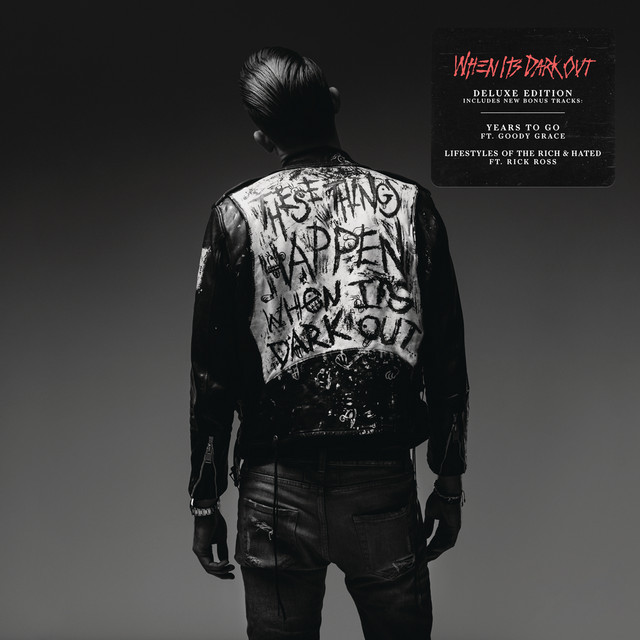
We may receive a portion of sales if you purchase a product through a link in this article.
Everything Will Be Ok (Ft. Kehlani) earns RIAA Gold for G-Eazy recognizing 500,000 units on December 3, 2025.

Everything Will Be Ok (Ft. Kehlani) earns RIAA Gold for G-Eazy recognizing 500,000 units on December 3, 2025.

G-Eazy's 2015 single "Everything Will Be Ok," featuring Kehlani, was certified Gold by the Recording Industry Association of America (RIAA) on December 3, 2025. The certification from Bpg/Rvg/RCA Records recognizes 500,000 certified units in the United States.
Released on December 4, 2015, "Everything Will Be Ok" is a track from G-Eazy's fourth studio album, When It's Dark Out. The song is considered one of the artist's most introspective and revealing works, addressing personal and family struggles. It features a soulful and calming hook from fellow Bay Area artist Kehlani, delivering a message of reassurance and hope. The track has accumulated approximately 538,223 pageviews on Genius.

Born Gerald Earl Gillum in Oakland, California, G-Eazy launched his career while attending Loyola University in New Orleans. Often called "the James Dean of rap," he built a following with independent releases before his 2014 major-label debut, These Things Happen. The album When It's Dark Out marked a significant commercial breakthrough for the artist, peaking at number five on the Billboard 200 and topping the R&B/Hip-Hop chart. The album was also home to his massive hit duet with Bebe Rexha, "Me, Myself & I." G-Eazy continued his chart success with subsequent albums like 2017's The Beautiful & Damned, which included the hits "No Limit" and "Him & I."
Inside Out earns RIAA Platinum for Duster, recognizing 1,000,000 units on December 3, 2025.

We may receive a portion of sales if you purchase a product through a link in this article.
Inside Out earns RIAA Platinum for Duster, recognizing 1,000,000 units on December 3, 2025.

Inside Out earns RIAA Platinum for Duster, recognizing 1,000,000 units on December 3, 2025.

The San Jose band Duster has earned a Platinum certification from the Recording Industry Association of America (RIAA) for their song "Inside Out." The certification, awarded on December 3, 2025, recognizes 1,000,000 certified units. Released on February 24, 1998, the track is featured on the band's seminal album, Stratosphere, and the certification was issued under The Numero Group label.
Duster, a key group in the slowcore and shoegaze movements of the 1990s, originally formed in San Jose. The band, consisting of members like Clay Parton and Canaan Amber, became known for its distinct lo-fi atmospheric sound, which was developed while recording on cheap analog equipment in a makeshift home studio they named Low Earth Orbit. After a period of inactivity, the band's music found a new, widespread audience in the streaming era, leading to a significant resurgence in popularity decades after their initial releases.
According to Genius, the lyrics of "Inside Out" explore themes of falling in love while lacking the courage to confess those feelings. The song's enduring appeal is reflected in its digital performance, having amassed over 376 million streams on Spotify alone. Duster maintains a substantial online following with more than 1.27 million followers and over 3.3 million monthly listeners on the platform. The track has also found viral success on TikTok, where it has been used in over 372,000 posts, further cementing its place as a cult classic that has successfully crossed over to a mainstream audience.
Some Kind Of Drug (Feat. Marc E. Bassy) earns RIAA 2x Platinum for G-Eazy recognizing 2,000,000 units on December 3, 2025.
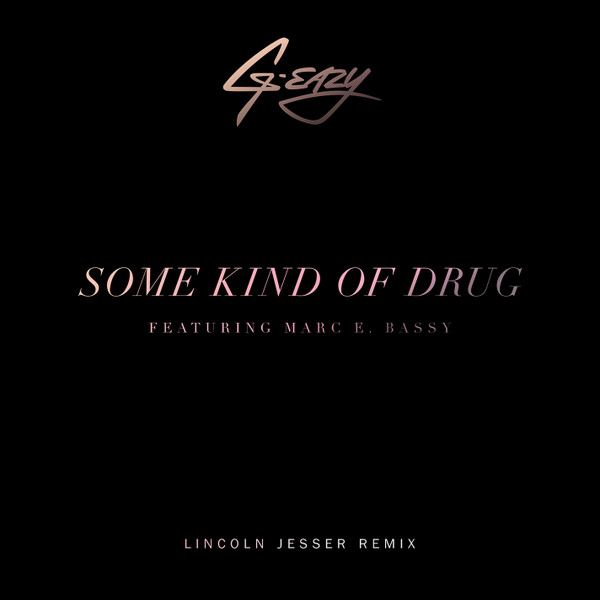
We may receive a portion of sales if you purchase a product through a link in this article.
Some Kind Of Drug (Feat. Marc E. Bassy) earns RIAA 2x Platinum for G-Eazy recognizing 2,000,000 units on December 3, 2025.

Some Kind Of Drug (Feat. Marc E. Bassy) earns RIAA 2x Platinum for G-Eazy recognizing 2,000,000 units on December 3, 2025.

G-Eazy's single "Some Kind Of Drug," featuring Marc E. Bassy, has been certified 2x Platinum by the Recording Industry Association of America (RIAA). The certification, dated December 3, 2025, recognizes 2,000,000 units in the United States. The R&B/Hip-Hop track was released by RCA Records.
"Some Kind Of Drug" was originally released on December 4, 2015, as part of G-Eazy's fourth studio album, When It's Dark Out. The album proved to be a commercial success, peaking at number five on the Billboard 200 and reaching the top of the R&B/Hip-Hop chart. The single features vocals from Marc E. Bassy, a frequent collaborator and friend of G-Eazy who also joined him on his world tour. Their previous work together includes the track "Friend Zone."

Born Gerald Earl Gillum in Oakland, California, G-Eazy began his career while attending Loyola University in New Orleans. Known for his slicked-back hair and leather jacket aesthetic, he was dubbed "the James Dean of rap." After releasing independent projects like The Epidemic LP (2009) and the mixtape The Endless Summer (2011), he signed with RCA for his major-label debut, These Things Happen (2014). His profile rose significantly with the success of the Bebe Rexha duet "Me, Myself & I" from When It's Dark Out. He followed this with more multi-platinum hits, including "No Limit" featuring A$AP Rocky and Cardi B, and "Him & I" with Halsey, both from his 2017 album The Beautiful & Damned.
Everyone's An Outlaw earns RIAA Gold for Bryan Martin, recognizing 500,000 units on December 3, 2025.

We may receive a portion of sales if you purchase a product through a link in this article.
Everyone's An Outlaw earns RIAA Gold for Bryan Martin, recognizing 500,000 units on December 3, 2025.

Everyone's An Outlaw earns RIAA Gold for Bryan Martin, recognizing 500,000 units on December 3, 2025.

Country artist Bryan Martin's single "Everyone's An Outlaw" has been certified Gold by the Recording Industry Association of America (RIAA). The certification, dated December 3, 2025, recognizes 500,000 certified units in the United States. Released on March 24, 2022, the track is the title song from his album of the same name, issued by Average Joes Entertainment.
Hailing from Logansport, Louisiana, Bryan Martin channels his blue-collar working-class background into his music. Before pursuing music full-time he worked as a "roughneck" on oil rigs, an experience that deeply informs his authentic storytelling. Music was a part of his upbringing; his mother sang with notable country figures such as Faron Young and Allison Krauss, and Martin began performing at local festivals by age eight. Though he stepped away from music as a teen to focus on work, he continued to write songs as a passion. His career gained significant momentum after his song "Beauty In The Struggle" went viral on TikTok, drawing the attention of music executives.

Martin's sound is rooted in traditional country, with influences of southern rock and outlaw country. A prolific, self-taught musician, he has reportedly written over 3,000 songs. This Gold certification for "Everyone's An Outlaw" marks a significant milestone, reflecting his growing audience and commercial success. The artist maintains a strong digital presence, with over 3.6 million monthly listeners on Spotify, 303,000 subscribers on YouTube, and nearly 400,000 followers on TikTok. His total YouTube views have surpassed 342 million, underscoring his widespread appeal.
Wolves Cry earns RIAA Gold for Bryan Martin, recognizing 500,000 units on December 3, 2025.

We may receive a portion of sales if you purchase a product through a link in this article.
Wolves Cry earns RIAA Gold for Bryan Martin, recognizing 500,000 units on December 3, 2025.

Wolves Cry earns RIAA Gold for Bryan Martin, recognizing 500,000 units on December 3, 2025.

Bryan Martin's single "Wolves Cry" has been certified Gold by the Recording Industry Association of America (RIAA), as announced on December 3, 2025. The certification recognizes 500,000 units in U.S. sales and streaming equivalents. Released on January 26, 2023, via Average Joes Entertainment, the track marks a significant career milestone for the country singer-songwriter.
Hailing from Logansport, Louisiana, Martin draws from a blue-collar working-class background that informs his authentic storytelling. Before pursuing music full-time he worked as a "roughneck" on oil rigs, and those real-life experiences are a cornerstone of his songwriting. A self-taught musician, Martin began performing at local festivals at age eight, encouraged by his mother, a singer who had performed with artists such as Faron Young, Allison Krauss, and David Houston. Though he stepped away from music as a teen to focus on work, he continued to write songs as a hobby, amassing a catalog of over 3,000 tracks across country, southern rock, and gospel.

"Wolves Cry," featured on Martin's album Poets & Old Souls, has become a fan favorite, accumulating over 103 million streams on Spotify. The song's success builds on the momentum Martin gained after his track "Beauty In The Struggle" went viral on TikTok. His music resonates with a wide audience, reflected in his digital presence, which includes over 3.6 million monthly Spotify listeners, 303,000 YouTube subscribers, and nearly 400,000 followers on TikTok.
Stars Will Fall earns RIAA Gold for Duster, recognizing 500,000 units on December 3, 2025.

We may receive a portion of sales if you purchase a product through a link in this article.
Stars Will Fall earns RIAA Gold for Duster, recognizing 500,000 units on December 3, 2025.

Stars Will Fall earns RIAA Gold for Duster, recognizing 500,000 units on December 3, 2025.

The San Jose slowcore band Duster has received its first-ever RIAA certification, with the 1997 single "Stars Will Fall" officially certified Gold. The award, dated December 3, 2025, recognizes 500,000 certified units in the United States. The single is released via The Numero Group, which has handled the band's reissues and recent material.
"Stars Will Fall" was originally released on January 1, 1997, as the closing track on the band's debut EP, Transmission, Flux. Characterized by its dreamy and atmospheric sound, the song has become a staple of the shoegaze and slowcore genres. Decades after its initial release, the track found a new audience, becoming one of Duster's most-streamed songs with over 180 million plays on Spotify alone, contributing significantly to its eventual Gold status.
Duster, composed of members Clay Parton, Canaan Dove Amber, and Jason Albertini, formed in San Jose and developed a unique lo-fi sound by recording on cheap analog equipment in a home studio they called Low Earth Orbit. After releasing several influential albums, including 1998's Stratosphere, the band went on a long hiatus before reuniting in the late 2010s. Their return was met with renewed interest, solidifying their cult status and expanding their reach to a new generation of listeners, as evidenced by their current audience of over 3.3 million monthly Spotify listeners and more than 1.2 million followers on the platform.
Memory To Drown earns RIAA Gold for Bryan Martin, recognizing 500,000 units on December 3, 2025.

We may receive a portion of sales if you purchase a product through a link in this article.
Memory To Drown earns RIAA Gold for Bryan Martin, recognizing 500,000 units on December 3, 2025.

Memory To Drown earns RIAA Gold for Bryan Martin, recognizing 500,000 units on December 3, 2025.

Country singer-songwriter Bryan Martin has achieved a significant career milestone, earning his first Gold certification from the Recording Industry Association of America (RIAA) for his single "Memory To Drown." The track was officially certified on December 3, 2025, recognizing 500,000 certified units in the United States. Released by the label Average Joes Entertainment, the certification marks a major achievement for the artist known for his authentic, story-driven music.
"Memory To Drown" was released on February 3, 2022, and is featured on Martin's album Self Inflicted Scars. The song has become one of his most popular works, resonating with a broad audience and accumulating over 135 million streams on Spotify. Its success is indicative of Martin's growing influence in the country genre, where he maintains over 3.6 million monthly listeners on Spotify and has amassed more than 342 million total views on his official YouTube channel.

Hailing from Logansport, Louisiana, Martin draws from a blue-collar working-class background that includes time spent as a "roughneck" on oil rigs. A self-taught musician, he was influenced by the traditional country artists he grew up listening to and by his mother, who sang with notable performers like Faron Young and Allison Krauss. Martin began writing songs as a hobby and has since built a catalog of over 3,000 tracks that span traditional country, southern rock, and outlaw country. His ability to translate real-life emotion and experience into his music has connected with listeners, leading to viral success with other songs like "Beauty In The Struggle" and establishing him as a prominent voice in modern country music.
Backyard Lullaby earns RIAA Gold for Demun Jones, recognizing 500,000 units on December 3, 2025.

We may receive a portion of sales if you purchase a product through a link in this article.
Backyard Lullaby earns RIAA Gold for Demun Jones, recognizing 500,000 units on December 3, 2025.

Backyard Lullaby earns RIAA Gold for Demun Jones, recognizing 500,000 units on December 3, 2025.

Country-rap artist Demun Jones has earned his first RIAA certification, as his 2016 single "Backyard Lullaby" was officially certified Gold on December 3, 2025. The certification recognizes 500,000 units in combined sales and streaming equivalents in the United States. Released on May 12, 2016, via Average Joes Entertainment, the track has demonstrated steady, long-term popularity, culminating in this career milestone.
"Backyard Lullaby" was featured on Jones' s album #Beast, which was also released in May 2016; some platforms, including iTunes and Genius, list the album as #Beast (Deluxe Edition). The version of the track on Spotify includes a feature from artist Noah Gordon. It has become one of Jones's signature songs and is his second most-streamed track on the platform, with over 31.9 million plays. Its consistent performance across digital platforms, including Pandora where Jones has amassed over 553 million lifetime streams, highlights the song's grassroots appeal within the country hip-hop subgenre.

Hailing from Jones County, Georgia, Demun Jones has built a career by blending rustic instrumentals and hip-hop fundamentals with authentic storytelling. He describes his unique sound as a product of his diverse influences, stating, "I grew up surrounded by hayfields listening to N.W.A. and Ozzy Osbourne. If you throw that in a blender, Demun Jones is what you get." This fusion is central to his identity as an artist who tells "country stories told through the lens of rap music." With a significant digital footprint that includes over 205,000 Spotify followers and 349,000 YouTube subscribers, Jones maintains a steady career as a mid-level artist with a dedicated fanbase.
Amor earns RIAA 19x Latin Platinum for Emmanuellcortess_, recognizing 1,140,000 units on December 3, 2025.

We may receive a portion of sales if you purchase a product through a link in this article.
Amor earns RIAA 19x Latin Platinum for Emmanuellcortess_, recognizing 1,140,000 units on December 3, 2025.

Amor earns RIAA 19x Latin Platinum for Emmanuellcortess_, recognizing 1,140,000 units on December 3, 2025.

The Recording Industry Association of America (RIAA) has awarded Emmanuellcortess_ a major certification for his single "Amor." On December 3, 2025, the track was certified 19x Latin Platinum, signifying 1,140,000 certified units in the United States. The single was released by Rc Music, Llc.
Released on July 28, 2023, "Amor" is a standout track from the artist's album "Memorias <3." Described as a heartfelt serenade about unwavering affection, the song has resonated widely with audiences. On Spotify, the track has accumulated over 354 million streams, while its Genius page has drawn approximately 90,163 pageviews. The song also became a significant viral hit, with data showing its use in over 1.3 million TikTok posts.
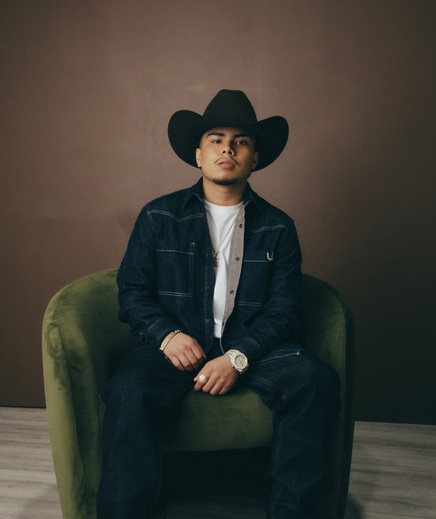
Born Emmanuel Cortes in Arkansas on December 6, 2006, Emmanuellcortess_ began his musical journey at age 14 by learning to play the guitar. Drawing inspiration from personal experiences, he developed a unique style within the regional Mexican genre that he describes as "Cumbia tumbada." He cites artists like Ariel Camacho, Gabito Ballesteros, and Natanael Cano as influences. The singer-songwriter has cultivated a substantial online following, with nearly 9.9 million monthly listeners on Spotify, 125,000 YouTube subscribers, and over 242,000 followers on TikTok.
Single Again earns RIAA Gold for Josh Ross, recognizing 500,000 units on December 3, 2025.

We may receive a portion of sales if you purchase a product through a link in this article.
Single Again earns RIAA Gold for Josh Ross, recognizing 500,000 units on December 3, 2025.

Single Again earns RIAA Gold for Josh Ross, recognizing 500,000 units on December 3, 2025.

Canadian country artist Josh Ross has achieved a new milestone as his single "Single Again" was certified Gold on December 3, 2025. The certification from the RIAA recognizes 500,000 units in sales and streaming equivalents for the track, which was released by Universal Music Canada.
Released on January 12, 2024, "Single Again" is a bold barroom anthem that has steadily gained popularity. The song reached No. 1 on Canadian Country Radio and is currently climbing the charts in the United States, adding to Ross's growing list of successful releases. The track is featured on the digital single of the same name, which also includes the song "Truck Girl."
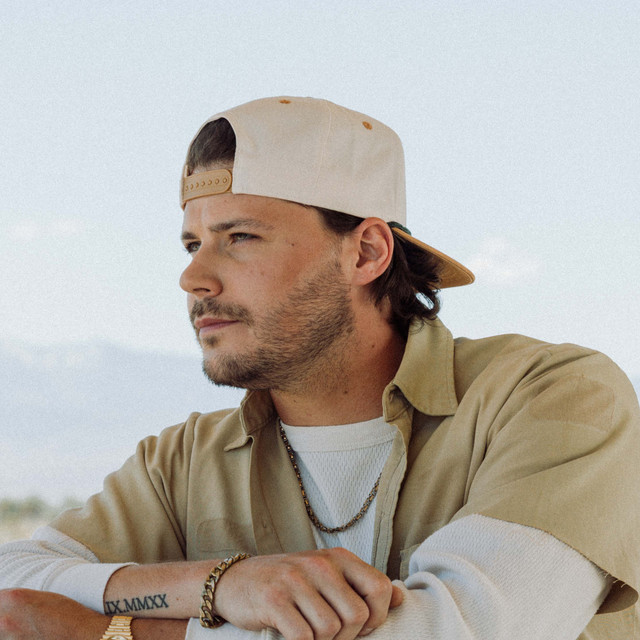
A former collegiate football player, the Canadian-born, Nashville-based Ross has become one of country music's most prominent rising artists. He blends modern country rock with a distinctive vocal rasp, citing influences from Guns N' Roses to Steve Earle. His breakout power ballad, "Trouble," previously earned RIAA Gold certification in the U.S. and hit No. 1 in Canada. With over 1.2 billion career streams, Ross has been named an Artist to Watch by platforms like Spotify and the Grand Ole Opry. His international success was recently recognized with his first CMA Award, the Jeff Walker Global Country Artist Award, and he is the current CCMA Entertainer of the Year. He has toured with major acts such as Nickelback, Bailey Zimmerman, and Jelly Roll.
Fafo (Ft. Charlie Farley, Og Caden And Austin Tolliver) earns RIAA Gold for Bryan Martin, recognizing 500,000 units on December 3, 2025.

We may receive a portion of sales if you purchase a product through a link in this article.
Fafo (Ft. Charlie Farley, Og Caden And Austin Tolliver) earns RIAA Gold for Bryan Martin, recognizing 500,000 units on December 3, 2025.

Fafo (Ft. Charlie Farley, Og Caden And Austin Tolliver) earns RIAA Gold for Bryan Martin, recognizing 500,000 units on December 3, 2025.

Country artist Bryan Martin's collaborative single, "Fafo (Ft. Charlie Farley, Og Caden And Austin Tolliver)," has been certified Gold by the Recording Industry Association of America (RIAA). The certification, dated December 3, 2025, marks 500,000 certified units in the United States. Released on August 18, 2022, via Average Joes Entertainment, the track is Martin's first RIAA award for the single.
Hailing from Logansport, Louisiana, Martin brings a blue-collar working-class perspective to his music, drawing from his real-life experiences as a "roughneck" on oil rigs. Music was a significant part of his upbringing; his mother sang with established artists such as Faron Young and Allison Krauss, and he began performing at local festivals by age eight. Though he stepped away from music as a teenager to focus on work, he continued to pursue songwriting as a "hobby - a passion." His career gained significant momentum after his song "Beauty In The Struggle" went viral on TikTok, capturing the attention of music industry executives. Influenced by traditional country, Martin has written a diverse catalog of over 3,000 songs.

The Gold certification for "Fafo" reflects Martin's growing presence in the country, country rock, and outlaw country scenes. His authentic storytelling has cultivated a substantial digital audience, including over 3.6 million monthly listeners on Spotify and more than 248,000 followers on the platform. On YouTube, Martin has garnered 303,000 subscribers and accumulated over 342 million total views, while his TikTok account has attracted nearly 400,000 followers. These metrics underscore the grassroots support that has propelled his work to this commercial milestone.
Memorias <3 earns RIAA 2x Latin Platinum for Emmanuellcortess_, recognizing 120,000 units on December 3, 2025.

We may receive a portion of sales if you purchase a product through a link in this article.
Memorias <3 earns RIAA 2x Latin Platinum for Emmanuellcortess_, recognizing 120,000 units on December 3, 2025.

Memorias <3 earns RIAA 2x Latin Platinum for Emmanuellcortess_, recognizing 120,000 units on December 3, 2025.

The 2023 album 'Memorias <3' by singer-songwriter Emmanuellcortess_ has been certified 2x Latin Platinum by the Recording Industry Association of America (RIAA). The certification, dated December 3, 2025, recognizes 120,000 certified units in the United States. Released via Rc Music Llc, the album marks a significant achievement for the artist in the Latin music category.
Previously certified: 2x Platino (December 3, 2025).
Born Emmanuel Cortes in Arkansas on December 6, 2006, Emmanuellcortess_ began his musical journey at age 14, learning to play the guitar. He composes songs based on personal experiences and those of his friends, citing admiration for artists such as Ariel Camacho, Gabito Ballesteros, and Natanael Cano. He defines his innovative style as "Cumbia tumbada." In his own words, "My musical proposal I see as something special, using technology in different sounds that will undoubtedly be to the public's liking, transmitting a lot of love and joy in each of my songs."

Released on July 28, 2023, 'Memorias <3' has found a significant audience within the Música Mexicana genre. The album's commercial success is bolstered by standout tracks, particularly "Amor," which has accumulated over 354 million streams on Spotify. The artist's growing influence is reflected in his digital metrics, which include nearly 9.9 million monthly Spotify listeners, over 2.3 million Shazams, and a substantial following of over 242,000 on TikTok, underscoring the widespread appeal that drove the album to its multi-platinum status.
Slow Ride earns RIAA Gold for Colt Ford, recognizing 500,000 units on December 3, 2025.

We may receive a portion of sales if you purchase a product through a link in this article.
Slow Ride earns RIAA Gold for Colt Ford, recognizing 500,000 units on December 3, 2025.

Slow Ride earns RIAA Gold for Colt Ford, recognizing 500,000 units on December 3, 2025.

Colt Ford's 2019 single "Slow Ride," featuring Mitchell Tenpenny, was certified Gold by the Recording Industry Association of America (RIAA) on December 3, 2025. The certification recognizes 500,000 units in sales and streaming equivalents in the United States. Released on August 8, 2019, via Average Joes Entertainment, the track was later included on Ford's seventh studio album, We The People, Vol. 1, which arrived on September 20, 2019.
A pioneering figure in the country-rap genre, Colt Ford has built a career by fusing country themes with hip-hop and Southern rock. Since his debut in 2008, Ford has achieved significant commercial success, selling over three million albums and accumulating billions of streams. He is also the co-founder of the independent label Average Joes Entertainment. His discography includes the Gold-certified debut album Ride Through the Country and five consecutive Top 10 debuts on the Billboard Top Country Albums chart. His 2014 album, Thanks for Listening, reached the Top 10 of the all-genre Billboard 200 and topped the Rap and Independent charts. Ford has also been recognized for his collaborations, earning an Academy of Country Music Award nomination for "Vocal Event of the Year" for his duet "Cold Beer" with Jamey Johnson.
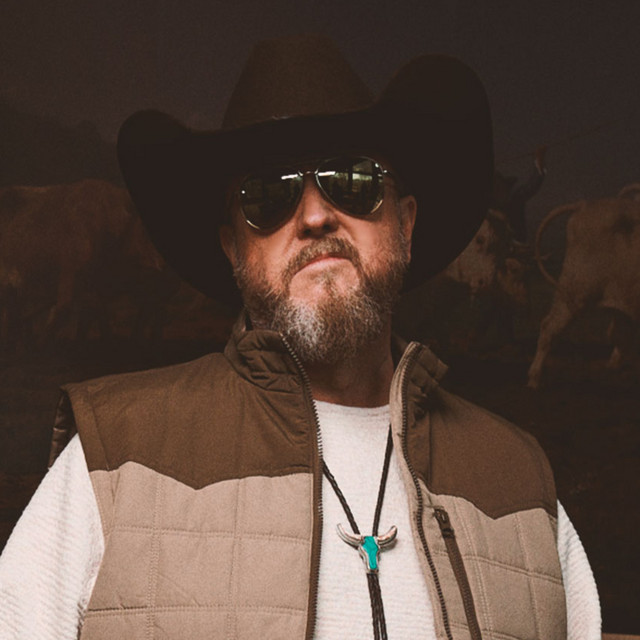
The Gold certification for "Slow Ride" underscores Ford's continued influence and dedicated fanbase. The song is one of his most popular tracks, with more than 55 million streams on Spotify alone. Ford maintains a strong digital presence with over 1.1 million Spotify followers, 535,000 YouTube subscribers, and more than one billion lifetime streams on Pandora. Known for his high-energy live performances, he remains a dynamic and influential artist in contemporary country music.
Me And The Birds earns RIAA Gold for Duster, recognizing 500,000 units on December 3, 2025.

We may receive a portion of sales if you purchase a product through a link in this article.
Me And The Birds earns RIAA Gold for Duster, recognizing 500,000 units on December 3, 2025.

Me And The Birds earns RIAA Gold for Duster, recognizing 500,000 units on December 3, 2025.

"Me And The Birds," a track by the San Jose slowcore band Duster, has officially been certified Gold by the Recording Industry Association of America (RIAA). The certification, dated December 3, 2025, recognizes 500,000 certified units in the United States. The song was originally released on August 22, 2000, as part of the band's second studio album, Contemporary Movement, and is now issued by The Numero Group.
Duster formed in San Jose, California, and became known for their influential contributions to the slowcore and shoegaze genres. The band recorded their early material on inexpensive analog equipment in a makeshift home studio they called Low Earth Orbit, which helped define their atmospheric, lo-fi sound. According to Genius, the lyrics of "Me And The Birds" explore themes of feeling disconnected from humanity and holding a negative outlook on modern society, aligning with the group's often introspective and melancholic style.
Decades after its initial release, "Me And The Birds" has found a significant and enduring audience in the streaming era, leading to its recent certification. The track has accumulated over 150 million streams on Spotify, where the band maintains more than 1.27 million followers and 3.3 million monthly listeners. Duster's music has also experienced a viral resurgence on platforms like TikTok, where their sound has been featured in over 372,000 posts, demonstrating a lasting impact that has connected with a new generation of listeners.
The Exit earns RIAA Gold for Conan Gray, recognizing 500,000 units on December 3, 2025.

We may receive a portion of sales if you purchase a product through a link in this article.
The Exit earns RIAA Gold for Conan Gray, recognizing 500,000 units on December 3, 2025.

The Exit earns RIAA Gold for Conan Gray, recognizing 500,000 units on December 3, 2025.

Conan Gray's single "The Exit" was certified Gold by the Recording Industry Association of America (RIAA) on December 3, 2025. The certification from the pop artist's label, Republic Records, recognizes 500,000 certified units in the United States.
Released on June 24, 2022, "The Exit" is the closing track on Gray's sophomore studio album, Superache. Thematically, the song explores the heartbreak of watching a former partner move on from a relationship while the narrator is still processing the breakup. The track was one of several on the album created in collaboration with acclaimed singer-songwriter Julia Michaels, who also worked on songs such as "People Watching," "Disaster," and "Telepath."

A Texas native, Conan Gray has emerged as a quintessential Gen Z singer-songwriter known for his indie pop sound and direct creative involvement in his music and visuals. His career gained significant momentum with his 2020 full-length debut, Kid Krow, which debuted at No. 5 on the Billboard 200 and achieved Platinum status. The album featured the 4x-Platinum hit "Heather," a song written solely by Gray that has accumulated over 2 billion streams. With 12 billion total streams across his catalog and subsequent albums including Superache (2022) and Found Heaven (2024), Gray has become an arena headliner, selling out iconic venues like Madison Square Garden.
Astronomy earns RIAA Platinum for Conan Gray, recognizing 1,000,000 units on December 3, 2025.
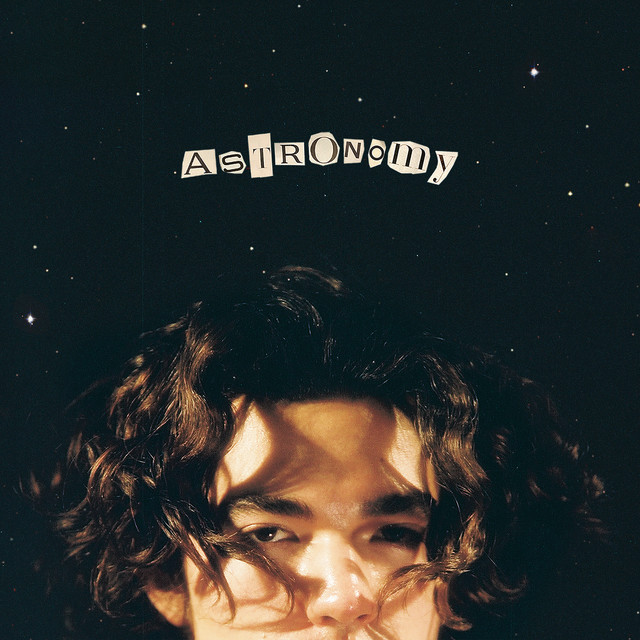
We may receive a portion of sales if you purchase a product through a link in this article.
Astronomy earns RIAA Platinum for Conan Gray, recognizing 1,000,000 units on December 3, 2025.

Astronomy earns RIAA Platinum for Conan Gray, recognizing 1,000,000 units on December 3, 2025.

Conan Gray's 2021 single, "Astronomy," has been certified Platinum by the Recording Industry Association of America (RIAA), as announced on December 3, 2025. The certification recognizes 1,000,000 certified units in the United States. Released by Republic Records on May 7, 2021, the track is one of several successful singles from the indie pop artist.
"Astronomy" served as the first single from Gray's sophomore album, Superache, which followed in 2022. Thematically, the song explores the painful experience of two people in a relationship slowly drifting apart, a concept Gray previously touched on in "The Story" from his debut album, Kid Krow. Since its release, "Astronomy" has accumulated more than 419 million streams on Spotify and has been viewed on Genius approximately 305,713 times.

Originally from Texas, Conan Gray has emerged as a prominent Gen Z singer-songwriter known for his bedroom pop aesthetic and personal involvement in his creative direction. His career gained significant momentum with his 2020 debut album, Kid Krow, which peaked at No. 5 on the Billboard 200 and earned a Platinum certification. The album included the 4x-Platinum hit "Heather," a track written solely by Gray that has surpassed 2 billion streams. With a total of 12 billion streams to his name and having headlined major venues like Madison Square Garden in 2024, Gray continues to build on his commercial and critical success.
Heading 2

Heading 3
Heading 4
Heading 5
Heading 6
Loremorem ipsum dolor sit amet, consectetur adipiscing elit, sed do eiusmod tempor incididunt ut labore et dolore magna aliqua. Ut enim ad minim veniam, quis nostrud exercitation ullamco laboris nisi ut aliquip ex ea commodo consequat. Duis aute irure dolor in reprehenderit in voluptate velit esse cillum dolore eu fugiat nulla pariatur.
Block quote
Ordered list
- Item 1
- Item 2
- Item 3
Unordered list
- Item A
- Item B
- Item C
Bold text
Emphasis
Superscript
Subscript



